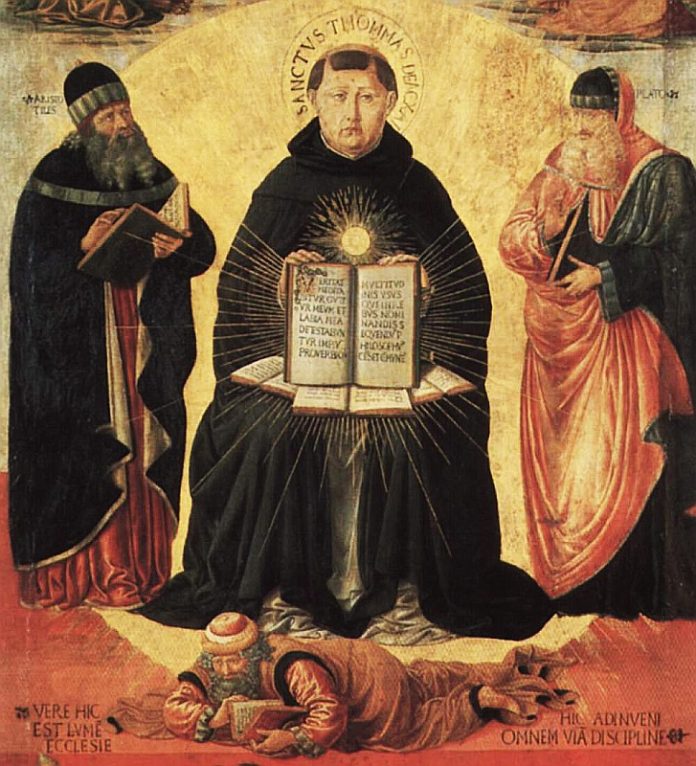(Here is, for your perusal, Saint Thomas’ teaching on charity – or divine-like love, ‘willing the good’ – is the principle of merit, rather than, as Kant would later say, the difficulty or greatness of the task. Here, Thomas is adumbrating Saint Therese’s ‘little way’, that small things done with great love, are greater in God’s eyes than more difficult and grander things done with little love. Even if, in the end, love prompts us to do ‘great things’. And the greater the love, the less the toil. Or as those Scottish musical philosophers were to sing even later in history, I would walk five hundred miles, and I would walk five hundred more, just to be the man who walks a thousand miles to fall down at yer door.) Editor.
Summa Theologica, I-II. Question 114.
Article 4. Whether grace is the principle of merit through charity rather than the other virtues?
I answer that, As we may gather from what has been stated above (Article 1), human acts have the nature of merit from two causes: first and chiefly from the Divine ordination, inasmuch as acts are said to merit that good to which man is divinely ordained. Secondly, on the part of free-will, inasmuch as man, more than other creatures, has the power of voluntary acts by acting by himself. And in both these ways does merit chiefly rest with charity. For we must bear in mind that everlasting life consists in the enjoyment of God. Now the human mind’s movement to the fruition of the Divine good is the proper act of charity, whereby all the acts of the other virtues are ordained to this end, since all the other virtues are commanded by charity. Hence the merit of life everlasting pertains first to charity, and secondly, to the other virtues, inasmuch as their acts are commanded by charity. So, likewise, is it manifest that what we do out of love we do most willingly. Hence, even inasmuch as merit depends on voluntariness, merit is chiefly attributed to charity.
Objection 2. Further, the Apostle says (1 Corinthians 3:8): “Every man shall receive his own reward according to his labor.” Now charity lessens rather than increases the labor, because as Augustine says (De Verbis Dom., Serm. lxx), “love makes all hard and repulsive tasks easy and next to nothing.” Hence charity is no greater principle of merit than any other virtue.
Reply to Objection 2. A work can be toilsome and difficult in two ways: first, from the greatness of the work, and thus the greatness of the work pertains to the increase of merit; and thus charity does not lessen the toil—rather, it makes us undertake the greatest toils, “for it does great things, if it exists,” as Gregory says (Hom. in Evang. xxx). Secondly, from the defect of the operator; for what is not done with a ready will is hard and difficult to all of us, and this toil lessens merit and is removed by charity.










